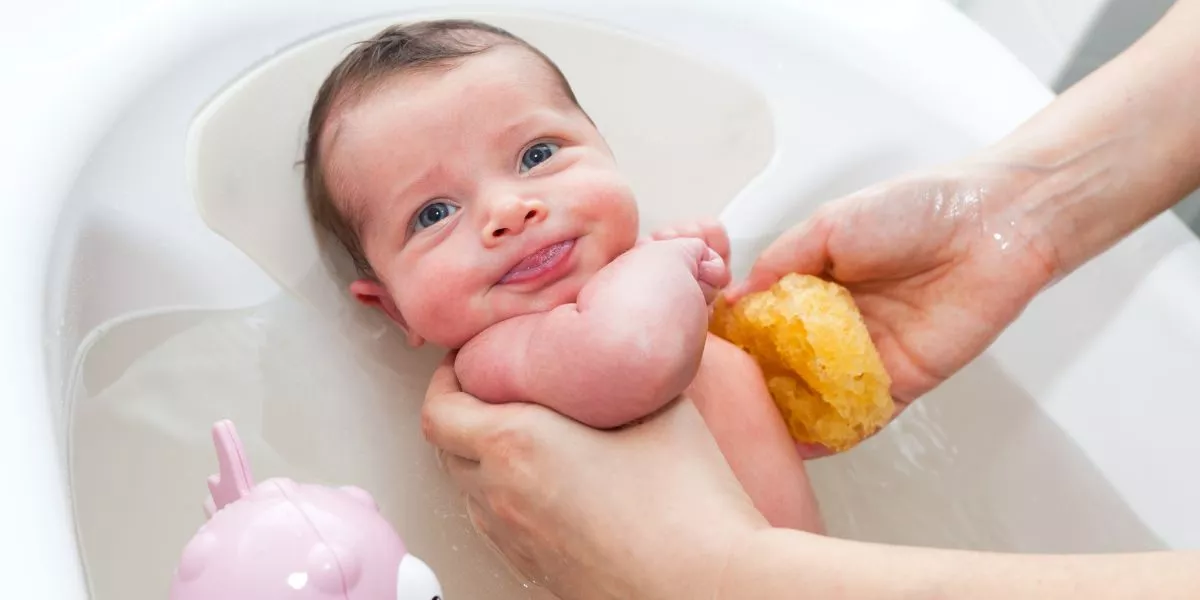To establish a soothing bath routine for your newborn, consider the frequency of baths and the water temperature as key factors. But what about the other essential aspects that contribute to a safe and comfortable bathing experience for your little one? From the right supplies to crucial safety measures, there are more elements to explore in creating the ideal bath routine for newborns.
Bath Frequency
When bathing your newborn, it's important to consider how frequently you should bathe them to maintain their hygiene without drying out their delicate skin. For most newborns, bathing 2-3 times a week is sufficient to keep them clean without stripping their skin of natural oils. Daily baths aren't necessary and can actually lead to dryness and irritation. However, if your baby enjoys bath time and it helps with their bedtime routine, you can bathe them every other day, ensuring to use gentle, baby-specific products.
Factors like your baby's skin type and any skin conditions they may have can also influence how often they should be bathed. Babies with dry skin may benefit from fewer baths using moisturizing products, while babies with more sensitive skin might require even less frequent baths to prevent irritation. Pay attention to how your baby's skin reacts after each bath to adjust the frequency accordingly. Remember, a newborn's skin is delicate, so always prioritize gentle care to keep it healthy and soft.
Water Temperature
To ensure your newborn's comfort and safety during bath time, always check the water temperature before placing your baby in the bath. The ideal water temperature for a baby's bath is around 100°F (37.8°C). Use a reliable thermometer to check the water temperature, ensuring it's not too hot or too cold. Test the water by swirling it around gently to avoid any hot spots that could harm your baby's delicate skin.
Remember that a baby's skin is more sensitive than an adult's, so what might feel warm to you could be too hot for them. Always use your wrist or elbow to gauge the water temperature before placing your baby in the bath. Additionally, consider adjusting the room temperature to keep your baby comfortable during and after the bath.
Essential Supplies
Gather the essential supplies needed for your newborn's bath routine to ensure a smooth and safe bathing experience. You'll need a mild baby soap or cleanser specifically formulated for delicate skin. Opt for a soft washcloth or sponge to gently clean your baby without causing any irritation. A small cup or a rinse pitcher will be handy for pouring water over your baby during the bath.
Additionally, have a soft towel or hooded baby towel ready to quickly wrap your baby in warmth after the bath. A clean diaper and a change of clothes should be nearby for when you finish bathing your little one. To keep your baby comfortable during the bath, a non-slip bath mat or a clean, soft cloth at the bottom of the tub can help prevent any slips.
Remember to have a gentle baby brush or comb for after-bath hair care and nail clippers or a baby file for nail maintenance. By having these essential supplies prepared and within reach, you can make bath time an enjoyable experience for both you and your newborn.
Safety Measures
Ensure a secure environment by implementing essential safety measures during your newborn's bath routine. Always test the water temperature before placing your baby in the tub to prevent scalding. Use a reliable thermometer to ensure the water is comfortably warm, around 100°F (37.8°C).
Keep all supplies within arm's reach to avoid leaving your baby unattended. Never leave your newborn alone in the bath, not even for a moment. Hold your baby securely at all times to prevent slips or falls. Use a non-slip bath mat or a supportive baby bath to provide stability.
Avoid using harsh soaps or chemicals that may irritate your baby's delicate skin and eyes. Trim your baby's nails beforehand to prevent accidental scratches. After the bath, wrap your baby in a soft towel and pat dry gently.

